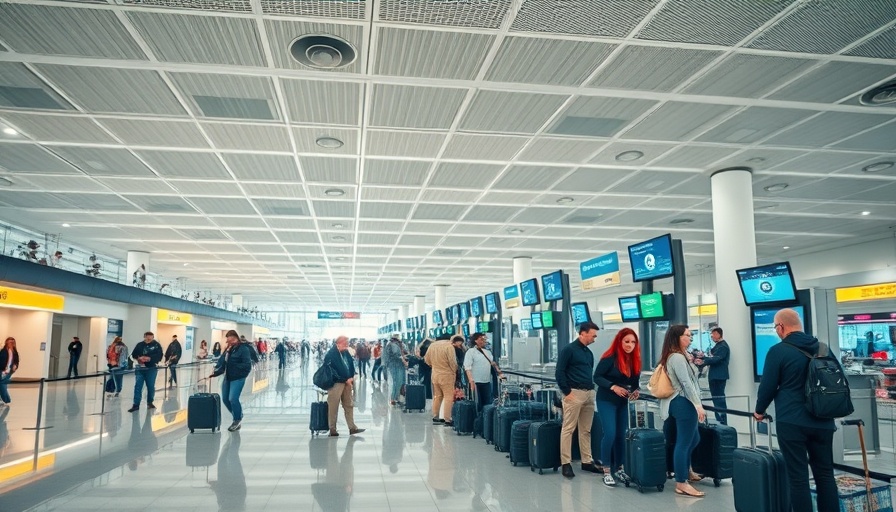
A Significant Upgrade for Travelers
Travelers flying through George Bush Intercontinental Airport's (IAH) Terminal A can now look forward to an enhanced travel experience after the completion of an $81.5 million upgrade to the terminal's security and baggage-handling system. The Houston City Council approved the final costs on March 19, marking the end of a long-awaited project aimed at modernizing the airport's infrastructure.
Modernization at Its Best
The extensive upgrade included the addition of automatic tag readers, ensuring a faster and more efficient baggage processing system for passengers. "This upgrade facilitates faster, more reliable baggage process and delivery," stated Jim Szczesniak, director of aviation for Houston Airports. The financial implications are significant—despite exceeding the original budget by $3.5 million, the costs remain under the approved contingency fund. Furthermore, the Transportation Security Administration is expected to reimburse $400,000 for associated expenses.
A Steady Commitment to Progress
This initiative is part of an ongoing effort to position Terminal A as a premier hub for air travel, integral not just for individual travelers but also for the economic vitality of Houston. According to Szczesniak, maintaining IAH in its status as a world-class airport is paramount for addressing the needs of Houston's booming business community.
Expanding the Horizon: Future Developments
The completion of Terminal A's enhancements coincides with several other significant projects at IAH. Recent upgrades have included modernizing restroom facilities and replacing aging jet bridges. Meanwhile, Terminal D recently opened its West Pier as part of a $1.46 billion redevelopment program, while United Airlines is on track with a $2.5 billion undertaking to revamp Terminal B. These advancements underscore a strong commitment to improving the airport's infrastructure and meeting the increasing demands of air travel.
Building a Competitive Edge
These developments not only provide immediate benefits for travelers but also enhance Houston's competitiveness in global air travel. As Szczesniak expressed, "We are actively exploring further expansion opportunities to meet this demand, ensuring IAH remains a competitive and vital hub for global connectivity." In the context of doing business in Houston, these upgrades represent a crucial move toward leveraging the airport's capacity to support local enterprises and attract new business investments.
The Economic Impact of Upgrades
As the city invests in modernizing its airports, the implications for local businesses are profound. A well-equipped airport fosters better connectivity for the region, which is vital for business operations. Whether it's small business in Houston or larger corporations, improved air travel connectivity plays an integral role in facilitating commerce and attracting tourism.
Conclusion: A Call to Embrace Transformation
As these substantial changes take shape, residents and businesses alike have reason to keep an eye on IAH’s evolving landscape. Affected by the airport's upgrades, Houston businesses stand to benefit significantly from a more integrated travel experience. Staying informed on these developments is crucial—after all, enhanced airport services could be the key to new business opportunities across Houston’s urban fabric.
 Add Element
Add Element  Add Row
Add Row 



Write A Comment